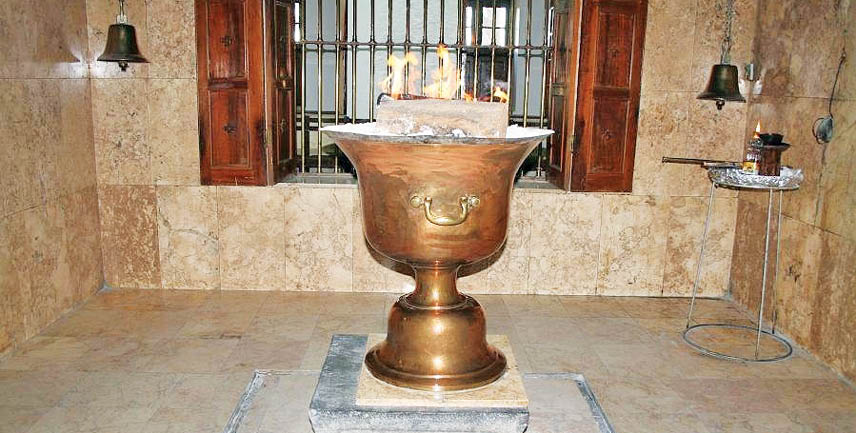.Myth: ‘Paalak’ is a Zoroastrian form of adoption and is religiously valid.
Fact: The Parsi custom of naming a ‘paalak’ for undertaking obsequies of a deceased cannot be confused with adoption. The fact is adoption is not yet legal among Parsis in India.
The only codified law available for adoption in India is The Hindu Adoption and Maintenance Act (HAMA). This Act came into force in 1956 and is applicable to:
- any person who is a Hindu by religion in any of its forms or development;
- any person who is a Buddhist, Jain or Sikh;
- any person who is not a Muslim, Christian, Parsi or Jew;
- any child legitimate or illegitimate whose parents are Hindus, Buddhists, Jains or Sikhs;
- any child legitimate or illegitimate one of whose parents are Hindus, Buddhists, Jains or Sikhs and has been so brought up;
- any abandoned child, legitimate or illegitimate of unknown parentage brought up as a Hindu, Buddhist, etc.;
- any person who is a convert to the Hindu, Buddhist, Jain or Sikh religion.
It is clear from the above that HAMA is NOT Applicable to Parsis.
The Guardian And Ward Act (GWA) 1890:
The Personal law of Muslims, Christians, Parsis and Jews does not recognize complete adoption. In India, as non-Hindus do not have an enabling law to adopt a child legally, those desirous of adopting a child can only take the child in ‘guardianship’ under the provisions of ‘The Guardian and Wards Act, 1890’ (GWA). But GWA, does not provide to the child the same status as a child born biologically to the family.
Unlike a child adopted under the Hindu Adoption and Maintenance Act, 1956 the child cannot become their own or inherit their property by right. The GWA confers only a guardian-ward relationship. This legal guardian-ward relationship exists until the child completes 21 years of age. Under the GWA, persons belonging to communities such as Muslim, Christian, Parsi or Jew and who wish to adopt can take up ‘guardianship’ of the child. In India, under Indian laws, such children do not enjoy the same status as those of a biological child.
In fact, under GWA the term ‘Guardian’ means minor for whose person or property or both, there is a guardian. The term ‘Ward’ means a minor for whose person or property or both, there is a guardian. In other words, if a Parsi parent desires to ‘adopt’ a child, the latter would not legally be considered “as if born to” the adoptive individual or couple.
Efforts over the past several decades by the government of India to pass a comprehensive secular law on adoption has failed on account of stiff opposition from non-Hindu communities, particularly Muslims and Parsis.
The Adoption of Children Bill, 1980, aiming to provide for an enabling law of adoption applicable to all communities, other than the Muslim community, was opposed by the Bombay Zoroastrian Jasan Committee, which formed a special committee to exempt Parsis from the Bill. The National Adoption Bill, tabled twice in Parliament in the seventies, has yet to enter the statute books.
Article 44 of the Constitution declares that: “The State shall endeavor to secure for the citizens a Uniform Civil Code throughout the territory of India.” However, every attempt to bring in the concept of secular adoption into the Indian system of laws is a saga of inaction and action without conviction on the part of the legislature.
No doubt, the Juvenile Justice Act 2000 (and its subsequent amendment of 2006) has neatly tucked in a provision for adoption, but, with no reflection on how it is to be implemented or its repercussions. The intentions of this Act are good, but they do not even mention adoption in the statement of object! Thus, the Act is not precise and clear in its terms and is in reality, in conflict with other pieces of legislation.
One needs to note that nowhere does the Juvenile Justice Act 2000 (or the amendment of 2006) say that it supercedes existing legislation on adoptions. JJA fails to override the provisions of other personal laws. For example the Muslim personal law does not permit adoption and the government can’t try and plug loopholes in one Act by amending another.
Thus, as of the moment ‘adoption’ is not yet legal among Parsi and the concept of ‘Paalak’ is merely naming the person who would take on the moral and religious responsibility of carrying out after-death religious ceremonies of a person who dies childless. It does not confer any legal rights over property or succession.
may have heard, and which they would like clarified, as also your feedback to editor@parsi-times.com.
- In Search Of The Soul - 5 April2025
- Why Pray In A Language We Do Not Understand? - 29 March2025
- Celebrate Nature’s New Year With Purity And Piety of Ava - 22 March2025
